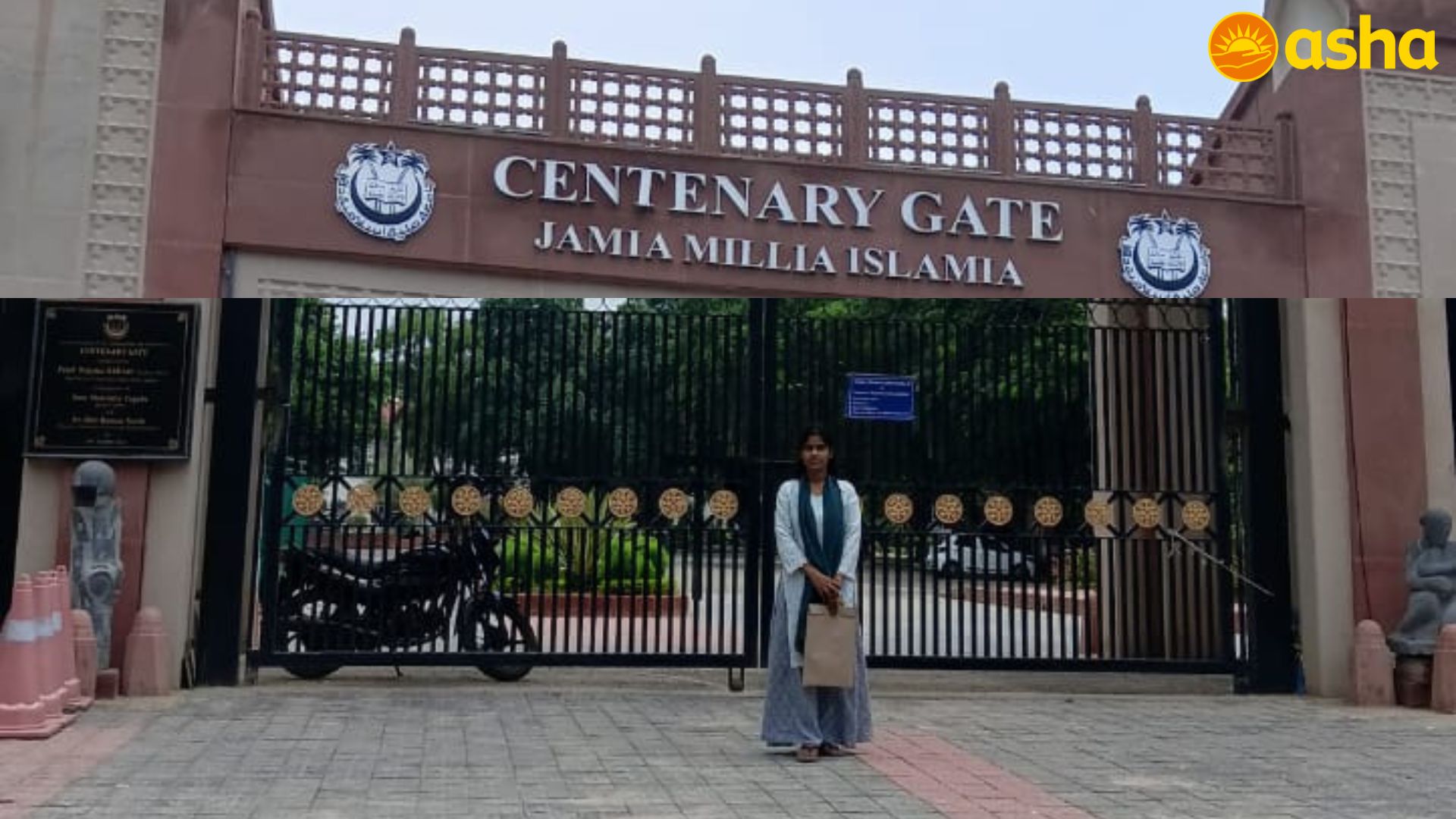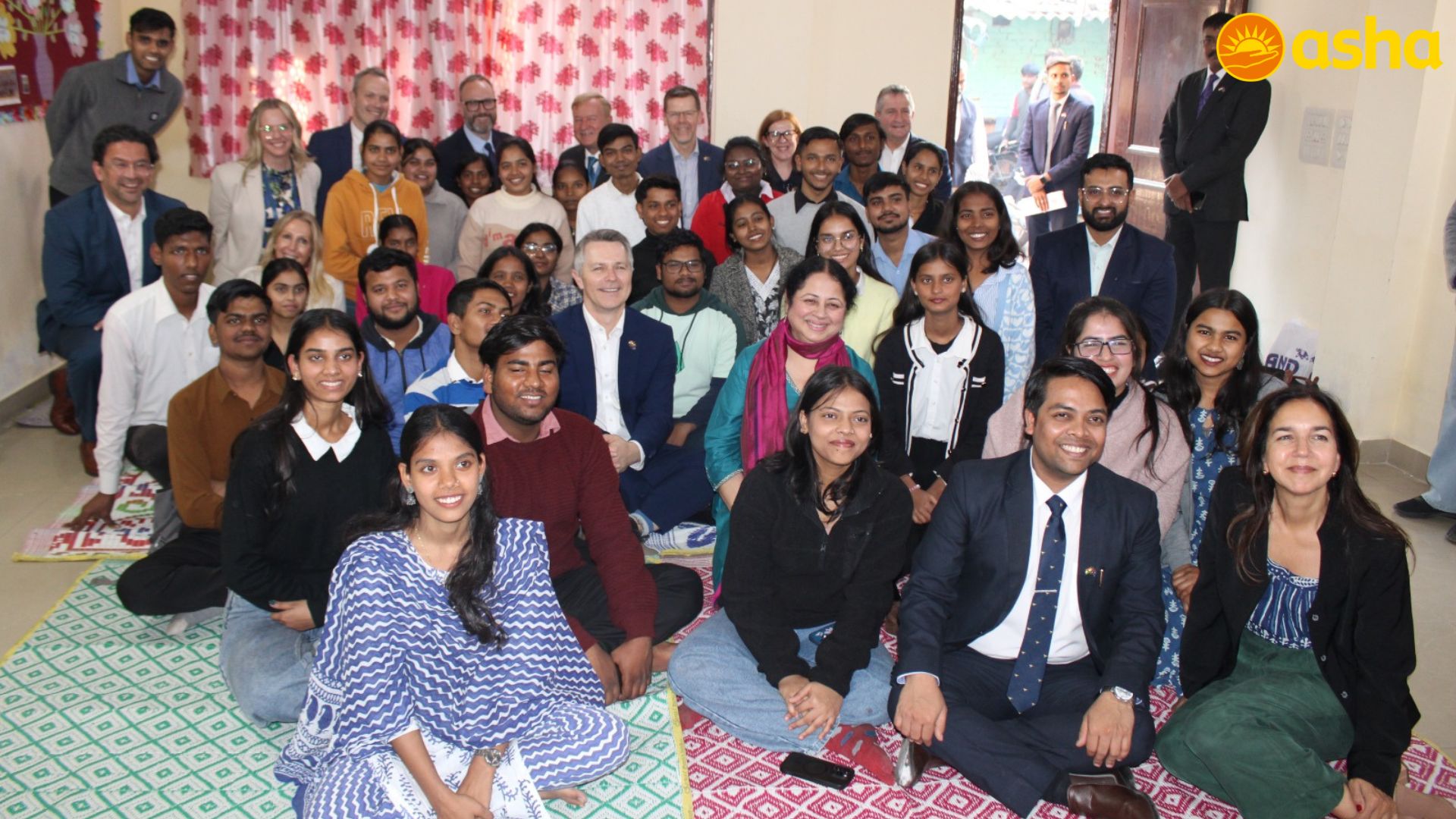Nusrat was born into a landless farmer’s family in a forgotten village, where poverty wasn’t
just a condition—it was a way of life. Her childhood wasn’t filled with lullabies. Instead, it
echoed with the sound of empty stomachs, calloused hands, and dreams buried under the weight of survival. The fields around her bore little fruit. The sky above offered little mercy.
Her father, who had studied only up to Class 8, took on whatever work he could—anything to keep the family breathing, even if barely.
When Nusrat was just four, her parents made a choice that would change everything.
With nothing but borrowed hope and their four children clinging to their sides, they came to Delhi. They squeezed into a cramped hut in Jeewan Nagar slum, sharing space with a relative.
Her father toiled at his brother’s tiny food stall from dawn to dusk, but before long, they were told to leave. Homeless once again, they found a small, dark room beside a chicken shop. The stench was unbearable. The flies, endless. The room was barely enough for six people to sit, let alone sleep. Yet, in that suffocating space, they made a home.


In those dim days, it was her father’s silent courage that lit the way. Bit by bit, rupee by rupee, he saved. And then one day, against all odds, he bought a fragile two-room shanty in the same
slum.
To anyone else, it may have looked like nothing. But to Nusrat, it was everything. It was safety. It was dignity. And within those crumbling walls, something began to awaken in her—a dream, shy and small, but alive.
School was never easy. With every passing year, life found new ways to test her. But she kept showing up—with her books, her brush, and her will.
In Painting, she found something no one could take away. When words failed, her colours spoke. Art became her secret language, her quiet defiance.
Then came the turning point: Asha.
She was in Class 12 when she first stepped into the Asha Centre. She was nervous, unsure.
But what she found there was nothing short of life-changing. For the first time, someone saw her—not the poverty, not the struggle—but her. Her potential. Her strength. Her voice.
At Asha, mentors sat beside her as she studied. They spoke to her with kindness, listened without judgment, and stood by her when the world turned away. The centre became more than a place to learn—it became her sanctuary. Her second home. Her hope.
With Asha’s help, she prepared for her school-leaving exams—and passed with 77%. In a world where girls like her are rarely celebrated, it was a quiet but mighty victory.
But Nusrat wasn’t done dreaming.


Asha encouraged her to apply for the Bachelor of Fine Arts (Sculpture) program at Jamia Millia Islamia University—one of India’s most competitive and prestigious institutions. The Asha team prepared her for the entrance exam, accompanied her to the centre, and stood beside her
every step of the way.
Then, the miracle happened.
Her name was on the list.
Nusrat didn’t just cry—she broke down in tears, overcome with emotion. In that moment,
she wasn’t just a slum girl who got into college. She was the girl who had risen.
She is the first Asha student ever to be selected for this elite program at such an elite university.
On August 1st, Nusrat will walk into the sculpture class at Jamia—not as an outsider, but as an artist.
Nusrat doesn’t just want to become a sculptor. She wants to stand tall for every child who grew up thinking they didn’t matter. She wants to prove that greatness is not born from privilege—it is born from persistence, from pain, from purpose.



